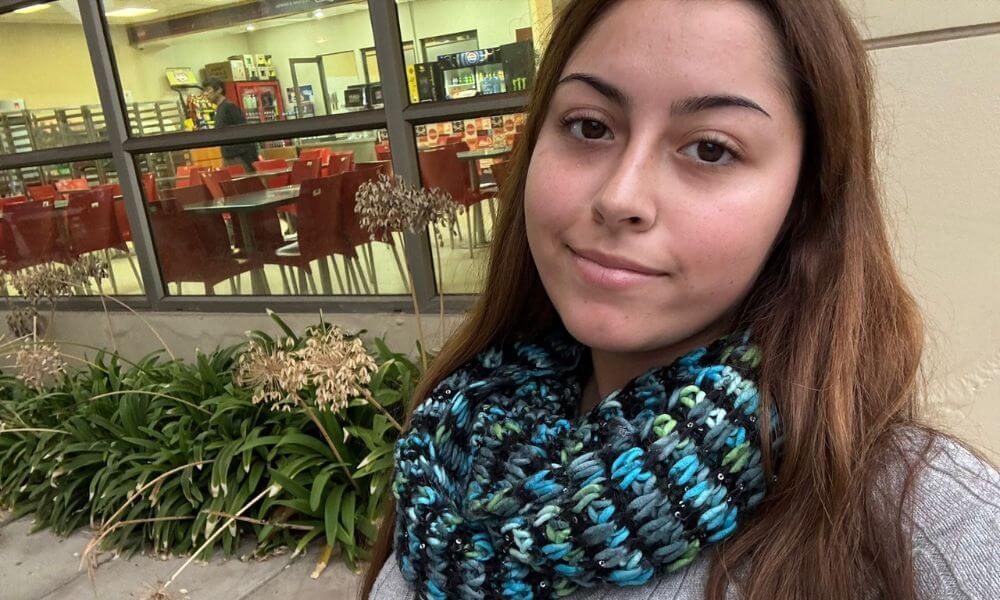Génesis’s passion for technology began when she was just 11 years old, after building a small robot during a school workshop. That moment sparked her curiosity about how things work and set her on a path toward innovation. Now, from Chile’s Coquimbo Region, she’s in the final year of her program and is one of the 100 recipients of the 2025 Luksic Más Mujeres en STEM Scholarship, an initiative by Fundación Luksic to increase female representation in traditionally male-dominated fields.
These days, Génesis is no longer thinking small. Her dream is to work on large-scale industrial systems, potentially even in mining operations. “This program was the perfect combination of mechanics, electronics, programming, and robotics,” she explains. “It’s all about maintaining complex systems—hydraulic, mechanical, or otherwise. There are so many industries where I could work, but mining really interests me because there’s still so much to learn.”
Her journey hasn’t been without challenges. Though her parents always emphasized the importance of education and independence, her father initially hoped she’d follow a more “traditional” path—like her sisters, who studied pharmacy tech. At his urging, she enrolled in a technical high school with a focus on accounting.
“But I never felt comfortable studying something office-related,” she recalls. “I was always drawn to mechanical things, to hands-on work. So after finishing high school and discovering this program, I didn’t hesitate—I enrolled immediately. My mom came with me, but we didn’t tell my dad at first because we knew he wouldn’t approve.” Over time, though, her father came around. “Now he even drives me to school. Both my parents are proud of how far I’ve come.”
One unexpected challenge was being the only woman in her entire program. “I’ve had to learn to set boundaries and earn respect from my classmates. But it’s also meant I’ve received a lot of support from my professors. Everyone knows me and encourages me to actively participate in class.”
Génesis believes women have a lot to offer in fields like mechanics, electronics, and tech—but acknowledges there’s still a lack of visibility and information for girls considering these paths. “I went into this program almost blindly. No one really explained what it involved or warned me I might be the only woman. I think schools need more talks, more spaces to introduce these careers and encourage girls to choose what really interests them—not just what feels safe.”
Driving Change: Women Who Can Do It All
According to Chile’s Ministry of Education (2025), only 35% of female students pursue university-level STEM degrees—a number that drops to just 11% in technical and vocational education.
Between 2024 and 2025, the Luksic Más Mujeres en STEM Scholarship has supported 200 women enrolled in higher-level technical programs across every region of Chile. “Encouraging more women to enter these fields is essential for national development,” says Fernanda Orellana, Director of Education at Fundación Luksic. “STEM careers offer better job opportunities, higher salaries, and help drive innovation and growth. Through this scholarship, we aim to open doors to future leaders and help close the gender gap in these crucial areas.”
This year, over 2,300 women applied for the scholarship. Of the 100 selected, ages ranged from 18 to 49, with 71% coming from regions outside of Santiago. The regions with the highest number of awardees were Valparaíso, Biobío, and O’Higgins.
In addition to the scholarship recipients, the campaign Women Who Can Do It All features testimonials from leading STEM professionals such as Barbarita Lara, Tere Paneque, and María Teresa Ruiz. The initiative, backed by over 20 partner organizations, aims to spotlight inspiring stories and raise awareness about the importance of STEM education for women.
At www.mujeresquetodolopueden.cl, more than 60 women are featured. “Each of these stories represents a powerful opportunity to challenge stereotypes, break barriers in male-dominated industries, and inspire girls and young women,” says Orellana. “We celebrate not only their talent and determination, but also their commitment to building a more inclusive future—one where science, innovation, and technology are shaped by diverse perspectives.”

